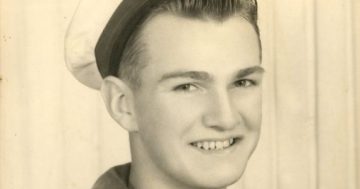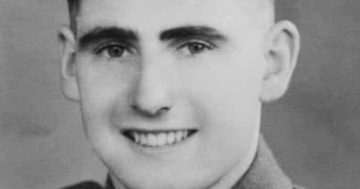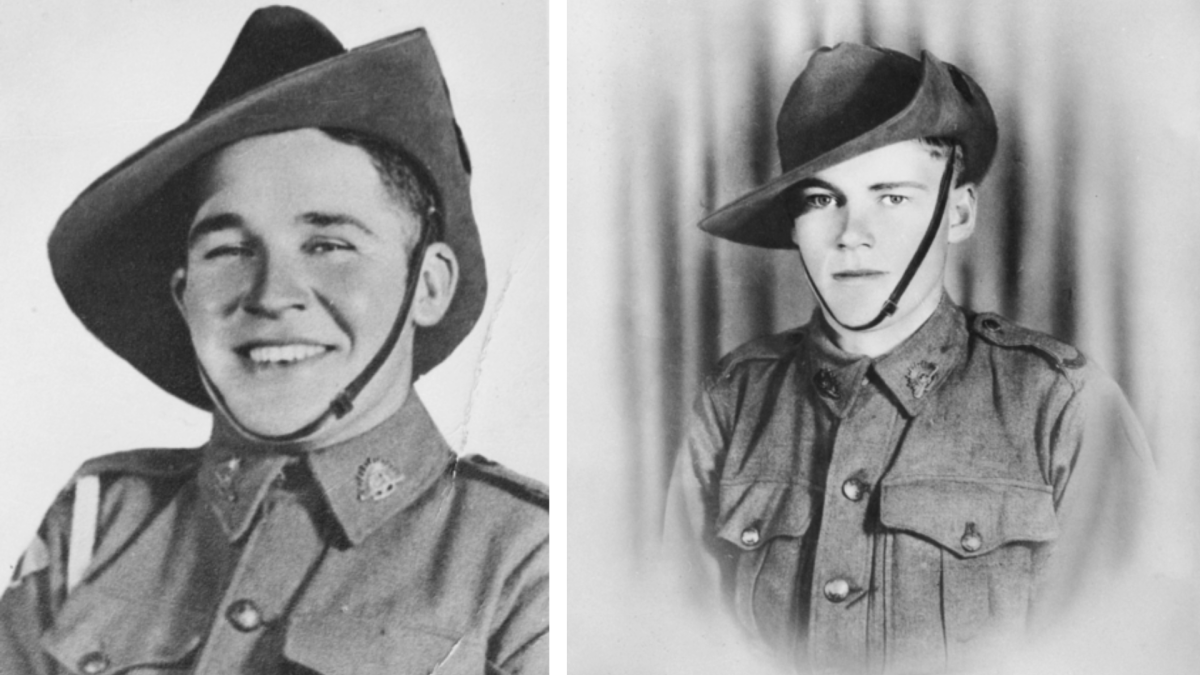
Dudley Lucas and Basil Albert Lucas were two of nine brothers from Bega who served in World War II. Photos: Australian War Memorial (Accession Numbers P00322.006 and P00322.009).
The Lucas family has settled into the legends of the NSW South Coast town of Bega after nine of the family’s brothers served in World War II.
Two of these brothers, Privates Dudley Lucas and Basil Albert Lucas, never made it home.
What adds to the heartbreak is that the former has never been found.
Their service and sacrifice will be commemorated this month with a joint Last Post Ceremony planned at the Australian War Memorial in Canberra for the 83rd anniversary of Dudley’s death.
Craig Tibbitts, a senior historian at the Australian War Memorial, said the family’s story stood out because it involved several brothers who served in the war.
He said if it was not the largest number of brothers from one Australian family to serve in the war, then it was one of the largest.
He also said it was his understanding that the other seven brothers survived the war, but Dudley and Basil “didn’t come home”.
Dudley was born in Bega in 1919 and Basil followed five years later. Their parents had 15 children together before their mother, Alice Christina Boneham, died in childbirth in 1929.
After she died, the family moved to a disused dairy at Brogo, a locality north of Bega. There, their father, Henry Joseph Lucas, raised the children.
“I imagine it would have been a pretty tough and spartan existence,” Mr Tibbitts said.
In an article published by Sydney’s The Sun in 1943, Henry was reported as saying: “I brought the boys up tough, and they find fighting easy”.
“Every year at Bega, we camped out while Mother and the girls lived in town. In winter, we trapped rabbits, and in summer, we gathered wattle bark,” he said.
Basil first tried to join the war effort when he was 15. Then when he was 16, he lied and said he was 20, so he was able to enlist in the army in April 1941, signing his attestation papers in Sydney alongside his brother Cecil.
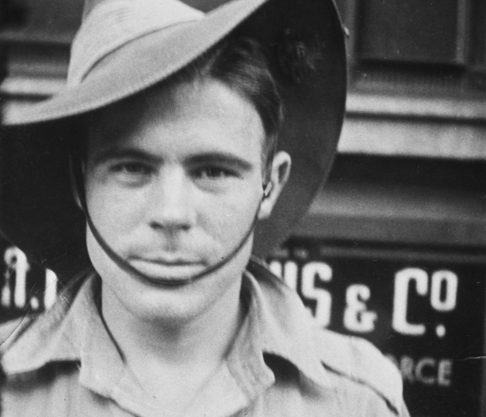
Cecil James Lucas (pictured) enlisted in World War II with his brother, Basil. Photo: Australian War Memorial (Accession Number P00322.007).
It was not unusual for someone to enlist so young, Mr Tibbitts said.
“There are lots and lots of underage examples of boys trying to enlist,” he said.
“It happened in both world wars and plenty got away with it, too.”
After several failed attempts, Dudley also successfully enlisted in May 1941.
Basil and Cecil joined a battalion in the Middle East in September 1941, however Mr Tibbitts said the fighting had finished by the time they arrived in Syria, so Basil was unlikely to have seen action there.
Meanwhile, Dudley had arrived in Singapore in August 1941, serving with the 2nd/30th Battalion.
On 14 and 15 January 1942, the battalion attacked Japanese forces at Gemencheh Bridge in Malaya. Among the 20 Australians killed or missing in action was 22-year-old Dudley.
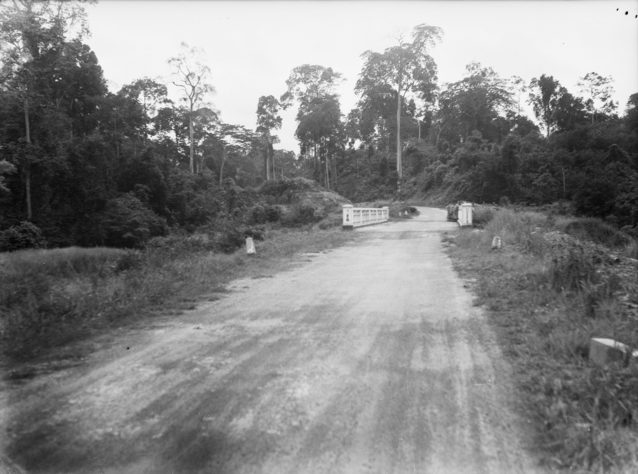
Gemencheh Bridge in Malaya, pictured in 1945. The bridge was the scene of a battle between Australian and Japanese forces in January 1942. Photo: Australian War Memorial (Accession Number 117484).
Mr Tibbitts said Gemencheh Bridge was one of the first times Japanese forces clashed with Australians and the former had been left with “a bloody nose”, even though the Australians had to retreat.
“They set up a defensive position there to try and halt the Japanese if they possibly could,” he said.
“They fought very hard and inflicted a lot of casualties on the Japanese, but ultimately the Japanese forces were too strong.”
The day after Basil’s 18th birthday in September 1942, his battalion disembarked at Port Moresby in New Guinea.
Basil was hospitalised with a fever that October and died of malaria on 25 November 1942.
Mr Tibbitts said it was unlikely that he saw action in New Guinea either, as he would not have been fit to fight when he arrived.
“A lot of people joined up and didn’t see any action at all. They may have died from accidents or illness without even seeing action, so it’s not entirely uncommon,” he said.
Dudley was never found. After the war, he was officially presumed dead and his date of death was set as 15 January 1942.
The Last Post Ceremony commemorating the service of the two Lucas brothers will be held on 15 January at 4:30 pm in the Commemorative area of the Australian War Memorial, Canberra.
It will also be live-streamed on the War Memorial’s YouTube page.












